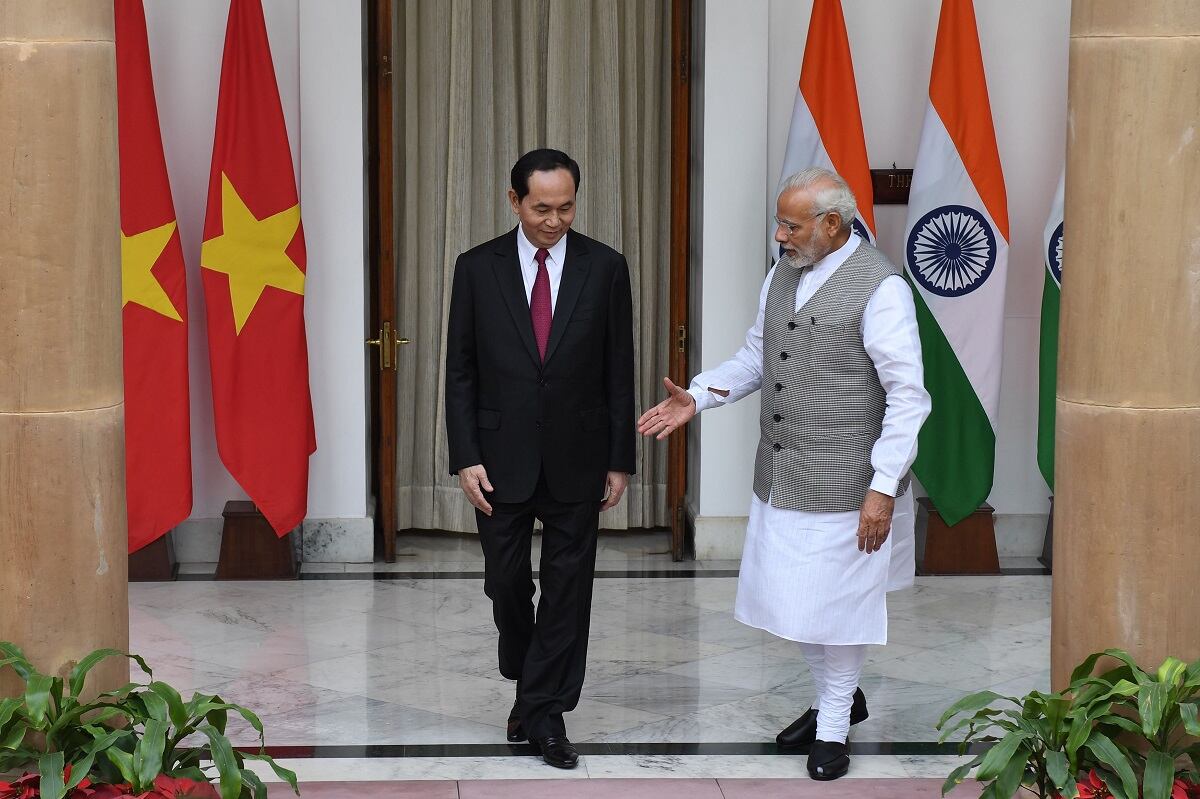BEIJING — China’s navy held live-fire exercises near Taiwan on Wednesday in a warning to the democratic, self-ruled island against what Beijing describes as “dangerous” remarks on independence.
Few details about the drills in the Taiwan Strait have been released by the Chinese government. State broadcaster China Central Television reported that the exercises targeted advocates of formal independence for Taiwan, saying in a headline on its website: “Don’t say you haven’t been warned!”
Taiwan’s Defense Ministry spokesman, Chen Chung-chi, sought to downplay the drill, saying China was exaggerating the scale of the activity to create anxiety among Taiwanese. “It is the Chinese Communist Party that has played this up with cheap verbal intimidation and saber rattling through the state media, hoping to create panic and unease,” Chen said.
Chen described the drill as “a regular artillery shooting exercise” and said China was hyping it up to sound like “a so-called military exercise in the Taiwan Strait.”
China’s Defense Ministry did not immediately respond to questions. The maritime safety authority in the coastal province of Fujian announced the one-day drill last week, saying only that it would start at 8 a.m. and end at midnight.
RELATED

Last week’s announcement of the drill coincided with President Xi Jinping’s attendance at what was the largest fleet review since the founding of the People’s Republic of China in 1949. It comprised 48 ships, among them China’s sole operating aircraft carrier, along with 76 helicopters, fighter jets and bombers, and more than 10,000 personnel.
The fleet review last Thursday was held in the South China Sea, off the coast of Hainan province.
Chinese officials have also denounced the recent passage of a U.S. law encouraging more high-level contacts with Taiwan. China says the Taiwan Travel Act violates U.S. commitments not to restore formal exchanges severed when Washington switched diplomatic recognition from Taipei to Beijing in 1979.
An agreement to provide Taiwan with submarine manufacturing technology and the appointment of hawkish national security adviser John Bolton have also hardened views among anti-American nationalists in China.
China claims Taiwan as its own territory and says the sides, which separated during the Chinese civil war in 1949, must eventually be united, by force if necessary. Despite a lack of formal ties, Washington is legally bound to respond to threats to Taiwan and is the island’s main supplier of foreign military hardware.
Beijing has also repeatedly criticized Taiwanese officials and has lately singled out Premier William Lai after he told the Taiwanese parliament that he’s a “Taiwanese independence worker” and that Taiwan is a sovereign, independent nation.
Asked about Lai’s comments, Liu Jieyi, director of China’s Taiwan Affairs Office, said Monday, according to the Global Times newspaper: “He’s precisely a Taiwanese independence advocate!”
Liu was also quoted as saying that China “has enough confidence and ability to stop any remarks and actions that attempt to separate any territory from the motherland.”
A spokesman for the same office said earlier this month that Lai’s comments on independence are “dangerous and presumptuous.”







